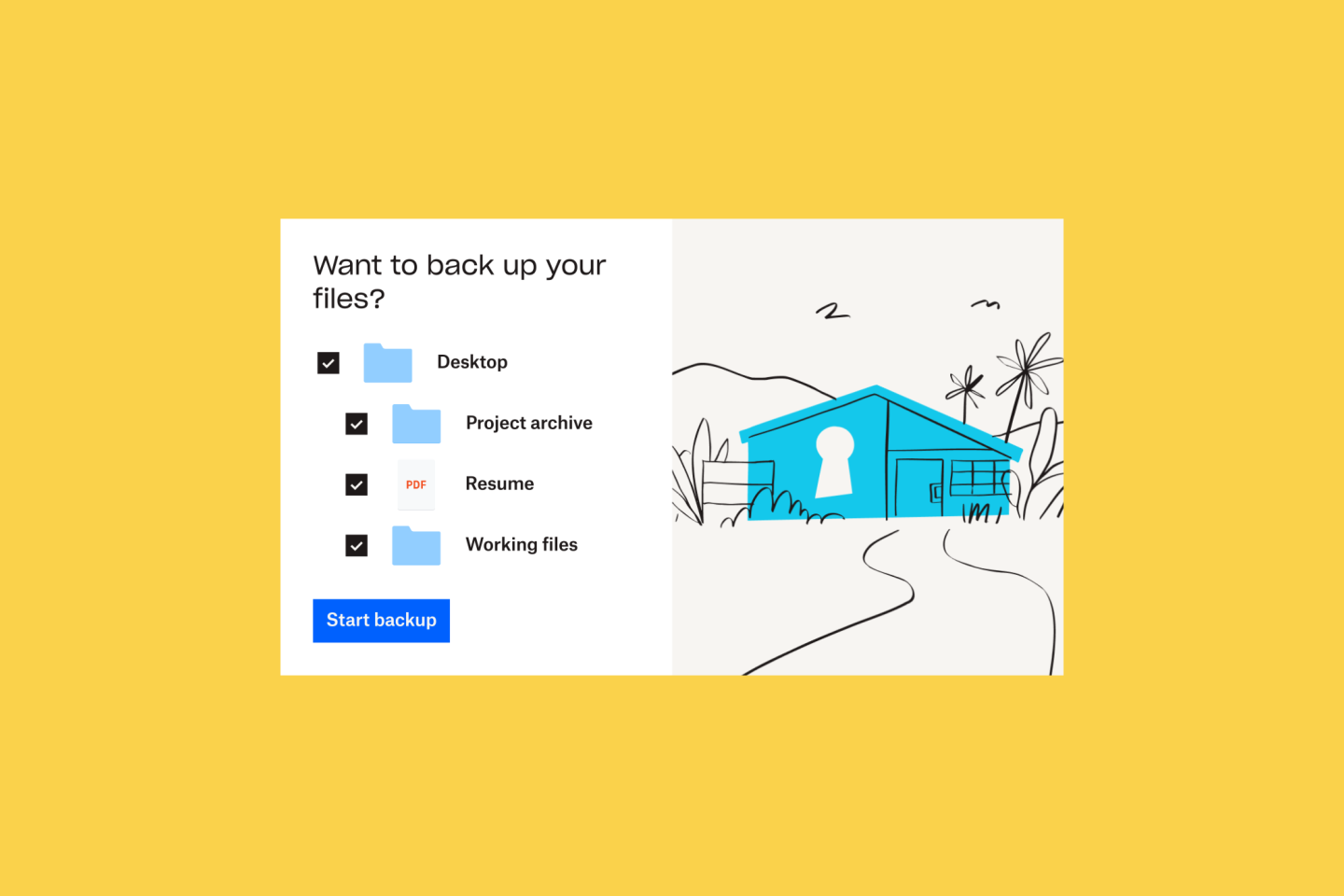What is continuous file backup and is it necessary?
We all know that protecting our data is important, but achieving this can sometimes be confusing. Continuous file backup provides a convenient and valuable solution to this problem. Learn more in this complete guide.

When you’re just starting out as a solopreneur or freelancer, a data backup strategy should be one of the first steps in your cyber security plan. And although some small business owners might think they’re too small to be targeted, here’s something to think about:
The rate of cybercrime increased by 600% during the COVID-19 pandemic. Ouch.
When it comes to cyber crime, everyone is vulnerable, no matter the size of their business. That’s why putting a cyber security plan in place is so critical to the success of your business. With backups, you can protect your files from cyber attacks, malware, accidental losses, and natural disasters.
All the same, it’s no secret that backing up every file and folder on your computer can be frustrating—and very time-consuming. Once you get into a good creative rhythm, you don’t want to disrupt your flow because you have to dedicate a chunk of your day for backing up to an external hard drive.
Fortunately, there is a solution to this: continuous file backup. This strategy avoids the stress, inconsistencies, and time constraints of manual backups.
So, how is this method different from other types of data backup? And is it really necessary? Before answering these questions, let’s explain how continuous file backup works.

First of all…what is continuous file backup?
Continuous backup is a process in which every change made to a stored document, file, or folder automatically triggers a backup of that data source. It is also known as “continuous data protection” (CDP) and “real-time backup”.
Like traditional backup methods, continuous file backup can take a complete snapshot of your computer and all the data within it.
However, the always-on nature of continuous backup means you don’t need to carry out manual backups at regular or scheduled intervals. No more waiting around while your files are copied over to a portable hard drive or USB stick!
It’s why continuous backup is a powerful solution that should be considered for any emergency backup plan.
How does continuous backup work?
Once you have installed and configured your backup software, it will create a complete copy of the data you select for backup. With continuous backup, the software will copy any revisions made to your source data to a new target, such as a separate file or folder in your account.
By creating multiple copies of each individual file, continuous backup allows you to roll your system back to the last version before your data loss. This enables you to recover your files without issue—so there’s no need to worry about lost work if your computer suddenly shuts down!
These backups will typically be saved and organized off-site in a cloud storage system, such as Dropbox Backup.

Continuous backup captures all the changes made to your work until your data is lost or damaged. You may see this referred to as an “incremental backup”. This means copies will only be made when the software detects a change to data that has already been backed up.
Continuous backup also gives you better version control than alternative backup methods. Because multiple copies are made, you can track changes and restore any version of a file. This is ideal if you work on projects that are quite collaborative, like web or app development.
Examples of data sources that can be copied and stored through continuous backup software include:
- Emails and messages
- Files and folders in your computer system
- Database files and logs
- Application data and files

What are the benefits and drawbacks of continuous file backup?
Continuous backup gives you peace of mind that your important data is protected at all times. If you‘re a freelancer or solopreneur, this method is ideal for supporting business continuity.
If you have an important client deadline coming up, backup speed and consistency are important. You don’t want to spend a lot of time backing up to a hard drive, panic because you forget to back up your work, or have not backed up recently enough to recover a client’s work.
There are a number of additional benefits to this kind of backup solution, including its convenience. However, as you can see, there are some drawbacks to continuous data backup.
Benefits |
Drawbacks |
Records every change to the source data and copies those changes to the target location |
Produces large volumes of data |
Always-on nature, meaning your files will always be up to date |
Single point of failure |
Records a copy of every transaction—important for regulated industries who need to demonstrate compliance |
|
Essential to disaster recovery strategies |
|
Multiple backup copies of each file are stored so that you can roll back to previous versions |
|
Removes the time restrictions of a scheduled backup window |
|
Automatic and works in the background, requiring no human intervention, training, or maintenance |
|
Backups are stored securely in the cloud and protected by encryption protocols |
|
Scalable and cost-effective |
|
Is continuous file backup necessary?
Continuous backup is an attractive option as far as cybersecurity, convenience, and data protection are concerned. This is the ideal proactive measure for managing and protecting your data, whether personal or professional.
For solopreneurs such as web developers and app developers, continuous backup is a must-have. If your work involves lots of files that are always being revised but you don’t have the time to back them up manually, you may find other backup methods too cumbersome.
Continuous backup is also increasingly important for auditing and compliance, especially if you experience a data security incident that needs investigating by forensics. Your backup software will make sure you are compliant with data privacy legislation such as HIPAA.
You might consider yourself extremely careful with your data, but accidents do happen, and data loss is always a possibility. Continuous backup offers you the security, reliability, and flexibility needed to keep your files safe and recoverable.

Keep your digital life safe with Dropbox Backup
Making sure your files are secure and easy to recover shouldn’t be a complicated process.
Dropbox Backup makes it easy to back up your files to the cloud automatically, so you can quickly and smoothly recover from whatever life throws your way.